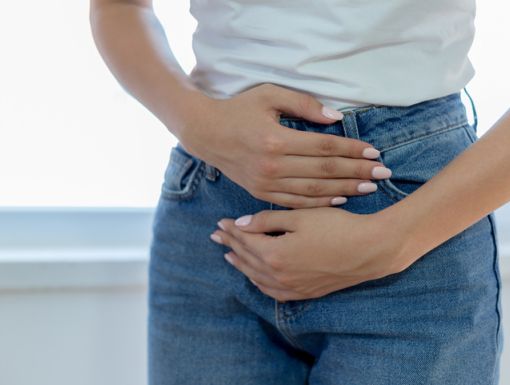
Top Foods to Avoid With Irritable Bowel Syndrome (IBS)
People with irritable bowel syndrome (IBS) often experience symptoms after eating certain foods. The symptoms typically include bloating, constipation, diarrhea or a combination of all. Making changes to your diet can help alleviate these symptoms. It’s important to identify which foods cause your discomfort.
Top diets to help with irritable bowel syndrome (IBS):
1. Dairy-free diet.
Dairy products, including milk, cheese and yogurt, can be difficult for some people to digest. You can try eliminating dairy from your diet to see if your symptoms improve. There are many dairy-free alternatives such as almond, oat or coconut milk, which can help you still enjoy these types of foods.
2. Gluten-free diet.
Gluten is a protein found in grain sources such as wheat, barley and rye. People can have a sensitivity to gluten and not necessarily have gluten intolerance or Celiac disease. Some people find that eliminating gluten can help their symptoms improve. There are many gluten-free options in grocery stores, such as flour, pasta, cookies and bread products. So, you can still enjoy the foods that you love.
3. Low-FODMAP diet.
FODMAP stands for "fermentable oligosaccharides, disaccharides, monosaccharides and polyols." That's quite a mouthful. Foods high in FODMAPs can be hard to digest, leading to gas, bloating, abdominal pain or even diarrhea. There are five types of high-FODMAP foods:
- Fructans, which can be found in wheat, rye, garlic, onion, leeks and artichokes
- Galacto-oligosaccharides, which can be found in beans, lentils, soybeans and nuts
- Lactose, which is found in dairy products
- Fructose, which can be found in certain fruits (apples, grapes, kiwi, mango, pears and watermelon), fruit juices, dried fruit and honey
- Polyols, which can be found in some sweeteners (such as sorbitol, mannitol, erythritol and xylitol), apricots, avocados, cherries, nectarines, peaches, plums and mushrooms
This diet can quickly become prohibitive and difficult without the help of a registered dietitian. A dietitian can help people identify which of these high-FODMAP food may be causing the gastrointestinal issues.
4. Low-fat diet.
High-fat foods can worsen IBS symptoms. Fatty foods including fried food, processed meats (deli meat, bacon and sausage), processed packaged snack foods and high-fat pastries.
5. Other foods to eliminate.
There are several other foods that may cause discomfort for some people. Eliminating some of these foods and drinks can possibly help with your symptoms:
- Gas-producing vegetables such as broccoli, Brussels sprouts, cabbage and cauliflower
- Coffee
- Carbonated drinks
- Chocolate
- Alcohol
What is the best diet for you?
IBS is different for everyone. Certain foods above may or may not affect your IBS symptoms. Before eliminating certain foods from your diet, it’s important to talk to your physician or registered dietitian.
Find a dietitian at Ochsner.



